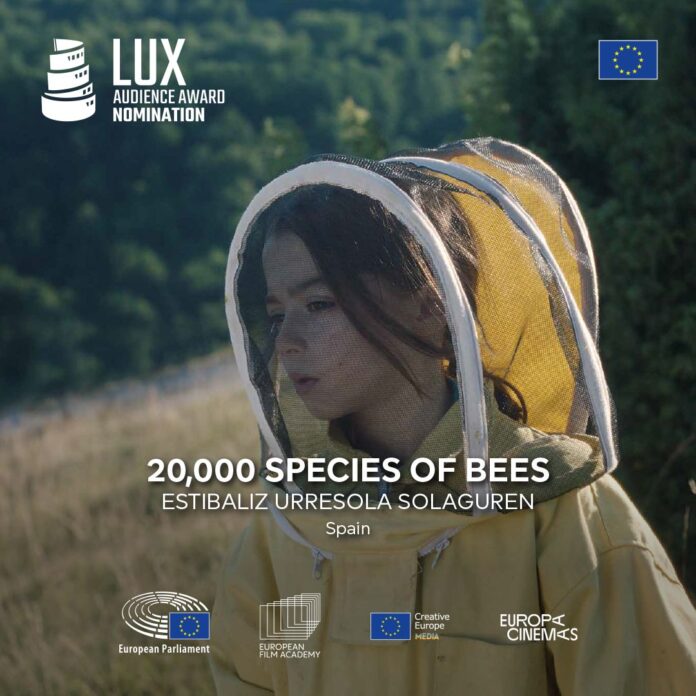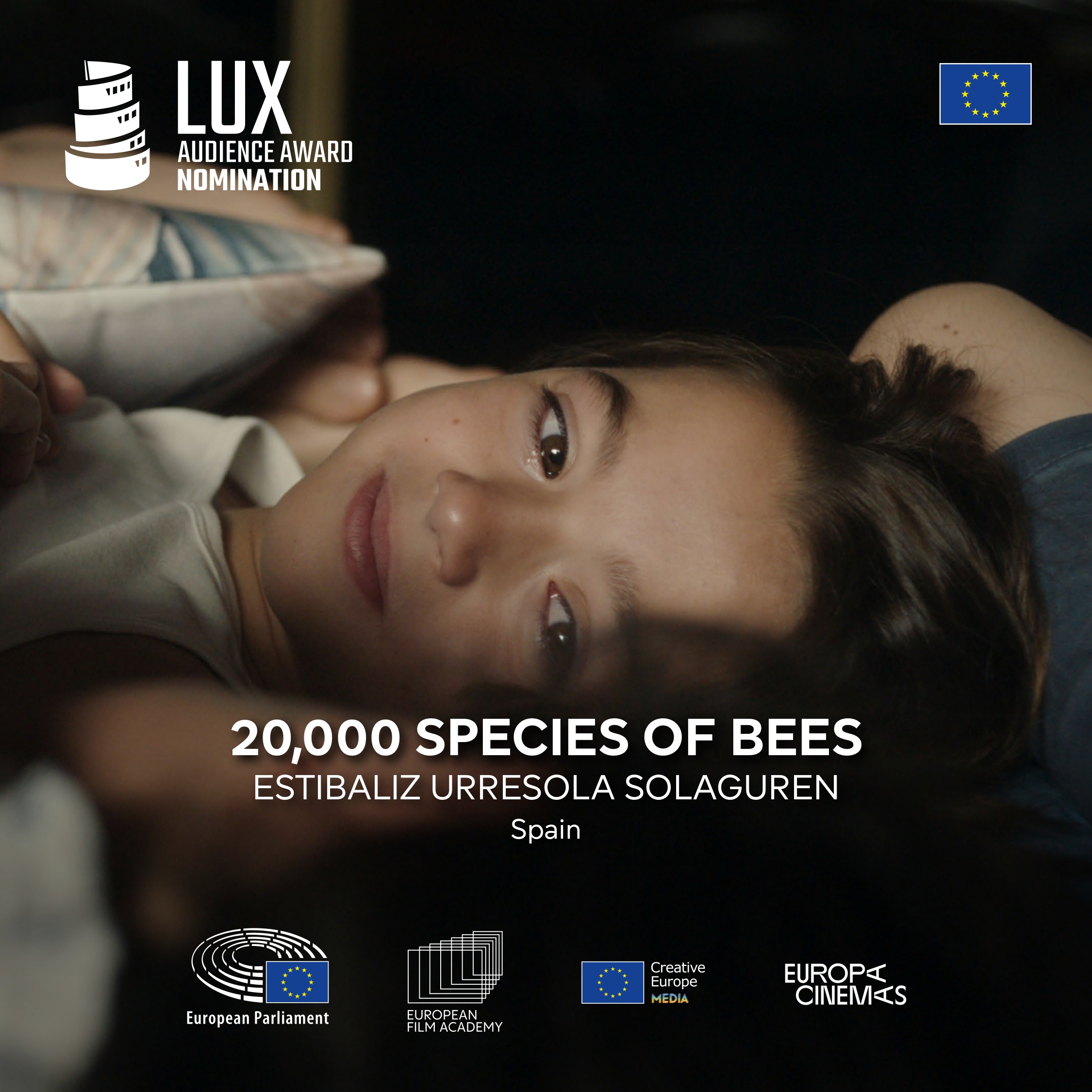Julian Hale reviews one of five excellent European films in the competition to win the coveted Lux Audience Prize.
‘20,000 Species of Bees’ is the first feature-length film by Spanish film director Estibaliz Urresola Solaguren. It explores diversity in terms of identity, nature and culture. It is one of five candidates in the running for the European Parliament’s Lux Audience Award for cinema.
The film centres around eigh-year-old Cocó’s (Sofía Otero) a boy – physiologically – who identifies as a girl. Cocó is called Aitor – a boy’s name – even though she no longer recognises herself as a boy. Cocó is not the only one coping with the situation, her mother Ane is going through her own crises. The family are spending the summer at their headstrong grandmother Lita’s house. Otero’s impressive performance has earned her a Silver Bear. As Spanish director Estibaliz Urresola Solaguren explained after the film was screened, her inspiration came from a 16-year-old ‘transteenager’ who committed suicide in the Basque country back in 2018.
“It had a big impact on Basque society. In 2018, no-one was talking about transidentity in childhood,” said Solaguren during a Q&A session after the film, adding that because transidentity wasn’t normal it was as if it didn’t exist. “The suicide led to a social awakening in the Basque country, with families sharing life stories of similar kinds all over the media”, she said.
As a viewer, I felt considerable discomfort and empathy for the main character, a young trans child, as they sought to work out how to be accepted as they wanted to be seen by their family and society. “We are constantly negotiating our own identity with the gaze of the other,” said Solaguren, who explained the kind of tough questions and emotions she wanted to address in the film. For example, the grandmother and mother are fighting with each other about how to deal with the young child and their identity. As Solaguren puts it, “How would you feel about your grandmother (who you love), if she is always fighting with your mum, who you love? How would you feel about not seeing your grandmother because your mum might prevent it? How would you feel when your brother doesn’t protect you?”
Apart from being about gender diversity – including in the bee world – the film is also about language diversity. Set in the Basque country on the border between France and Spain, it switches between Spanish, Basque and French. The main character is able to introduce themselves in a non-binary way by using the fact that there is no gender marker in Basque in the third person or in adjectives. It is only when the character feels strong enough to express their identity that they use Spanish, saying ‘estoy cansada’ (I’m tired), with the feminine ‘-a’ ending.
First shown at the Berlinale film festival, it has received many other plaudits, including the award for Best Fiction Feature Film at the prestigious José María Forqué Awards (awarded by the Spanish producers’ association).
Solaguren described the reception from audiences as “fantastic, much better than expected”.
“The film generates a lot of empathy for the characters,” she said, pointing out that many people identify with people in the film, such as the grandmother, the aunt or the mother.
She went on to say that the film resonates with the awareness of diversity and tolerance and ‘convivencia’ [living together] that is in the DNA of EU citizens. It’s hard not to agree with her.
This is a film that explores the tough subject of ‘transidenity’ with a lot of sensitivity but also puts out the tough questions that societies need to think over. As is the hallmark of many very good films, it doesn’t provide easy answers, which may well be why it made it to the last five for the Lux prize. Whether it should win or not is another matter and is partly up to you…
All five nominated films have been subtitled in the EU’s 24 official languages and are being screened in cinemas across the EU. EU citizens attending screenings and Members of the European Parliament can rate the films online (out of five stars) via the dedicated LUX award platform. The winner of the LUX Audience Award will be the film that receives the highest overall ranking from the public and the MEPs, with each group being allowed 50% of the vote.








